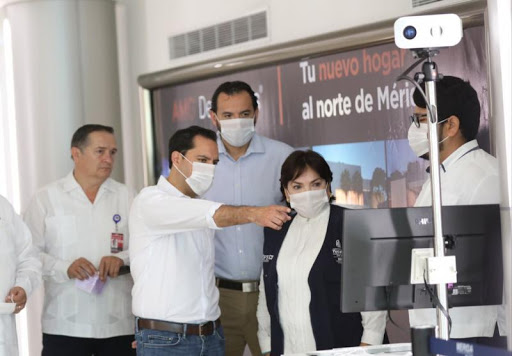As a generational global health crisis has swept across globe, local leaders are once again in the spotlight. As the axiom goes, subnational governments play among the most critical roles in ensuring effective responses in times of crisis: they are agile, innovative, and understand local contexts and needs; they have the ears of their constituents; they are positioned to coordinate with national leaders to ensure resources are deployed at the right place at the right time; they have historically been, and will continue to be, on the frontlines of social, economic, and environmental crises.
In the face of the global COVID-19 pandemic, GCF Task Face Governors are demonstrating bold leadership and affirming that moments of crisis bring out the best in government and humanity. From ensuring citizens’ basic needs are met while they shelter in place to developing economic support programs to mitigate the economic impact of COVID-19, their leadership brings symbols of hope and inspiration in a time of uncertainty and fear.
As we noted last week, GCF Task Force Governors in Peru have responded quickly by developing a roadmap which would prevent the economic fallout from COVID-19 from transforming into a deforestation emergency. Similarly, our members in Mexico are leading the way in COVID-19 response measures.
Hoy me dirijo a ti que eres locataria, mesero, emprendedora, industrial, prestador de servicios turísticos o transportista. En el @GobOax ponemos en marcha el Programa de Incentivos y Apoyos para la Estabilidad Económica con una inversión de 1,270 MDP. pic.twitter.com/50ZQPFUncc
— Alejandro Murat (@alejandromurat) April 7, 2020
Last week, Governor Alejandro Murat of Oaxaca announced an economic support program with 10 lines of action to support families and businesses through an investment of MXN 1.27 billion. “This is not the first time misfortune has knocked on our door to test us,” he said during the announcement, “…but it’s also not the first time that we have been called upon to demonstrate unity, the type that makes us great as Oaxacans.”
In Tabasco, Governor Adan Augusto, who has himself tested positive for COVID-19, has mobilized more than MXN 500 million for the healthcare sector and secured more than 10,000 specialized surgical masks to protect healthcare workers.
In Quintana Roo, Governor Carlos Joaquin launched a program in early April to ensure families are able to meet their basic food, water, health, electric and gas needs while under quarantine. By ensuring basic needs are being met, the Governor hopes to save lives and allow people to stay in their houses. The state has also introduced innovative digital health and unemployment apps that would make Silicon Valley proud.
We commend the Governors for their leadership in the face of this global health crisis—once again demonstrating that when crises arise, subnational governments stand ready to respond on the front lines.
Subnational leadership like that in Mexico is being replicated in GCF Task Force member states around the world, with consideration of each region’s unique economic, social, and environmental contexts as governments and their civil society partners navigate the challenges wrought by the COVID-19 pandemic.

